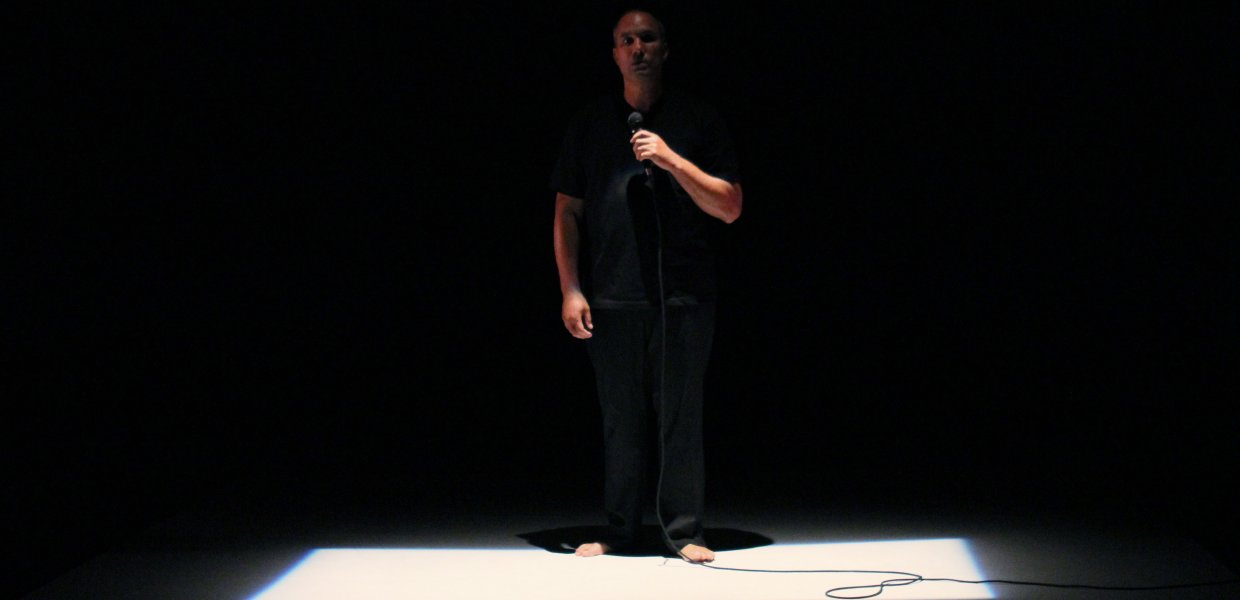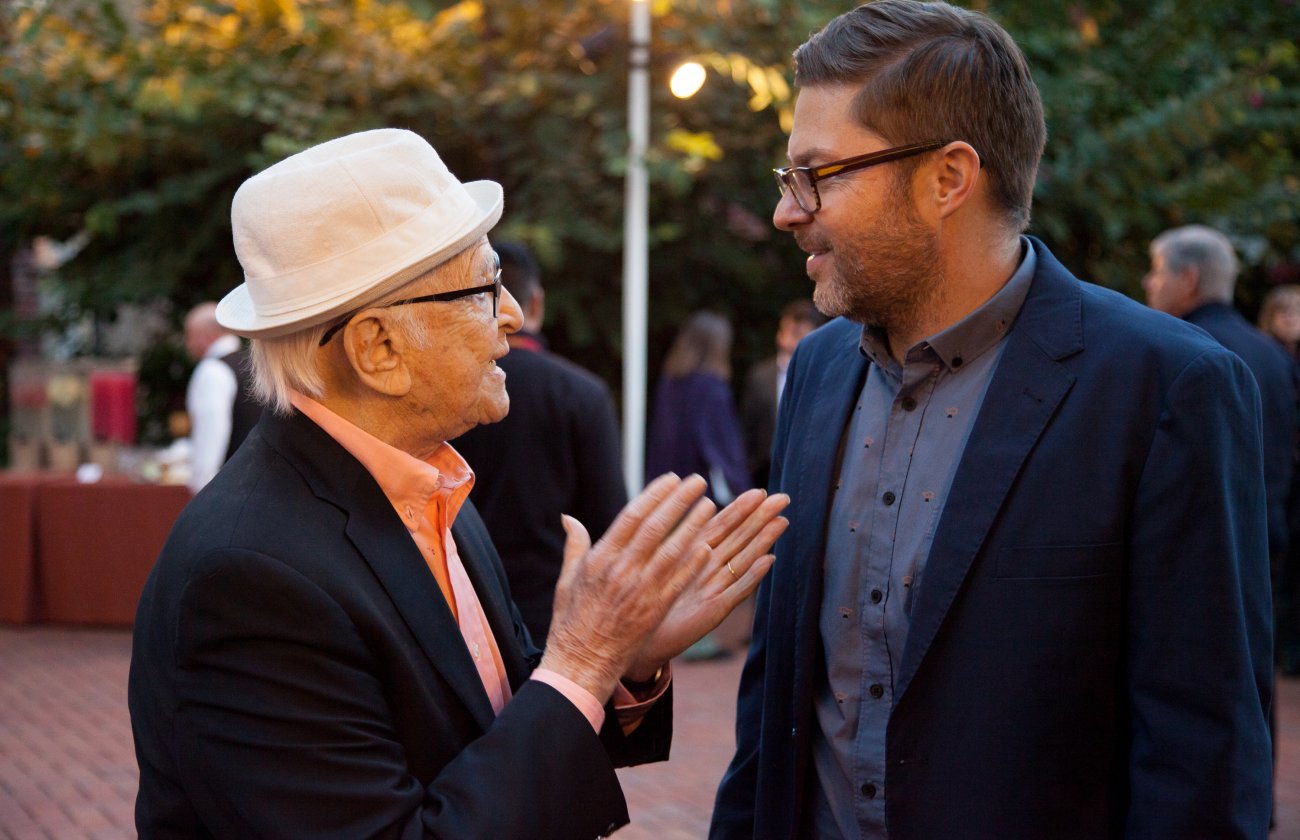“L.A. is burning.”
This is one of the many powerful, jarring lines from a solo performance called “Rodney King,” written and performed by actor Roger Guenveur Smith.
Smith stood, barefoot, on the stage of the Wallis Annenberg Hall auditorium in front of about 140 students and guests. The event was presented by the USC Annenberg School for Communication and Journalism and the Institute for Diversity and Empowerment at Annenberg (IDEA).
Smith, calling the performance a “prayer, not a solo performance,” performed as if speaking directly to Rodney King. His voice changed for each character and sometimes his voice rang out, or dropped low, soft and thoughtful.
King was arrested by the Los Angeles Police Department in 1991, and was beaten by four police officers — an incident caught on videotape. The following year, the four officers were acquitted and the decision incited riots, violence and chaos in Los Angeles. Mayor Tom Bradley called a state of emergency, and more than 50 people died during that time across Los Angeles county. A federal jury later found two of the police officers guilty.
More than two decades later, the effects of a bloody and bruised chapter in Los Angeles history are still raw and intense in the performance from Smith, a guest during the COMM 360 course, “The Rhetoric of L.A.: The View From Watts,” co-taught by professors Josh Kun and Robeson Taj Frazier.
Smith weaved other characters’ deaths and accidents from the riots, like Matthew Haines of Long Beach to Edward Song Lee, who was shot and killed in Los Angeles’ Koreatown after fellow Korean-Americans mistook him for a looter.
“Rodney King had to absorb all of this, the city going up in flames — in your name,” Smith said during a question and answer session after the performance. “That’s why these folks emerge.”
Smith added the words “I can’t breathe” to the end of the performance — made famous by 43-year-old Eric Garner when he was put in a chokehold by a New York Police Department officer in 2014.
“I’d added Eric Garner’s words to Rodney King’s speech, which has now become a mantra of a movement,” Smith said.
The idea to bring Smith to the class stemmed from Kun and Smith’s involvement with the Library Foundation of Los Angeles and the Los Angeles Public Library. Kun said an excerpt from Smith’s piece with Mark Broyard, “Inside the Creole Mafia,” was part of his menu show at the Regent Theater this past August in support of his project To Live and Dine in L.A.
Kun said he and Frazier had planned to focus a portion of their course on the riots.
“We knew we wanted a week focusing on the events of 1991-1992,” Kun said. “Roger’s incredible piece was a natural fit and with the support of [Dean Ernest J. Wilson III] and the Institute for Diversity and Empowerment at Annenberg, I was able to formally invite him,” Kun said.
Kun said the point of the performance was to not mistake the past for the past, but to see the past for what it is: our present.
“The numbers still mount. The bodies still fall,” Kun said. “Sadly, this was no period piece.”
Through the performance, the professors hoped the students would come to know Rodney King not merely as an urban icon or a headline or a beaten body on a videotape, but as a subject of history, a pressure point. King was an everyday man whose life-story was far more complex than media reports have allowed the public to see.
“Many [students] related it to their own lives, to their experiences here at USC during the more recent marches and protests about Ferguson, to their work with families in South Los Angeles,” Kun said. “One [student] was forced to ask herself: How can I do work like this? How can I make people feel the way that performance just made me feel?”
Frazier, who co-teaches the class with Kun, said they have been teaching the class using different kinds of accounts in terms of how the history of the city has been told.
“What can the terrible atrocity of Rodney King teach us, especially in this current moment where we continue to see excessive police use [and] misconduct occur?” Frazier said.
The professors are giving the students another way to think about Los Angeles’ history through theater, and encouraging a conversation about King and his relationship to Los Angeles.
Sophia Shirvanian, a USC Annenberg sophomore studying communication, said she didn’t expect the performance to be so intense.
“I realized halfway through my facial gestures were changing with what he said,” Shirvanian said. “I think he was really in touch with himself and it made it that much more impressive because he’s devoted his life [to learning about Rodney King] from what it seems.”
Smith said his performance was a personal journey. But the story is universal, and he said it is particularly important for students to understand.
“It’s a history we should know, especially [USC] Trojans working and studying in the community,” Smith said.








